I Ching Book Of Changes Quotes & Sayings
Enjoy reading and share 7 famous quotes about I Ching Book Of Changes with everyone.
Top I Ching Book Of Changes Quotes
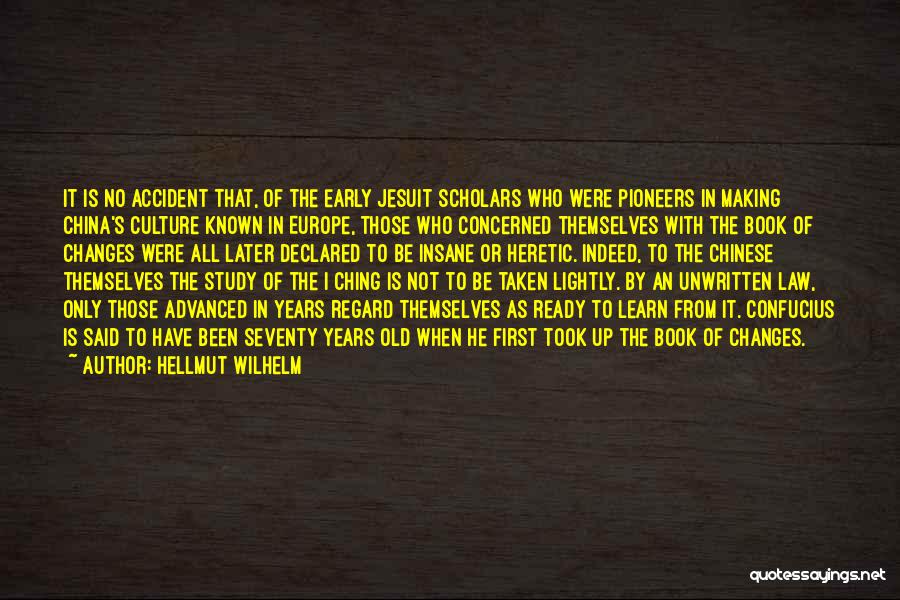
It is no accident that, of the early Jesuit scholars who were pioneers in making China's culture known in Europe, those who concerned themselves with the Book of Changes were all later declared to be insane or heretic. Indeed, to the Chinese themselves the study of the I Ching is not to be taken lightly. By an unwritten law, only those advanced in years regard themselves as ready to learn from it. Confucius is said to have been seventy years old when he first took up the Book of Changes. — Hellmut Wilhelm
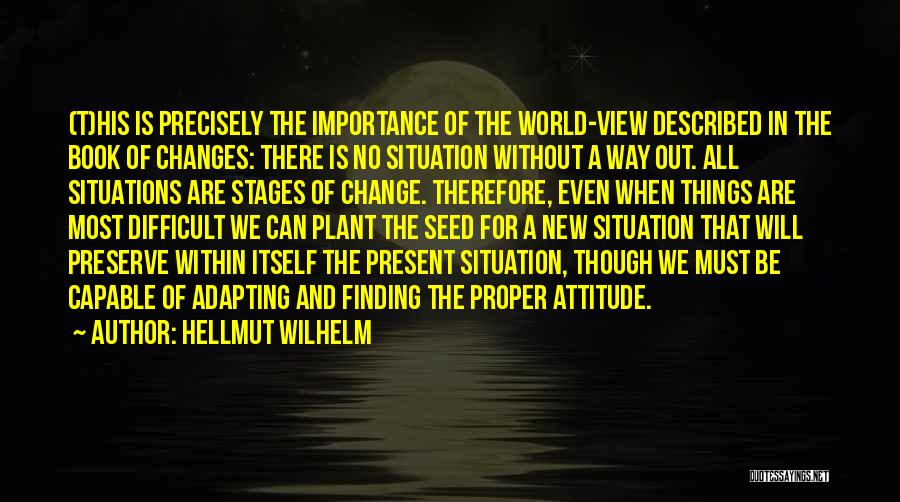
(T)his is precisely the importance of the world-view described in the Book of Changes: there is no situation without a way out. All situations are stages of change. Therefore, even when things are most difficult we can plant the seed for a new situation that will preserve within itself the present situation, though we must be capable of adapting and finding the proper attitude. — Hellmut Wilhelm
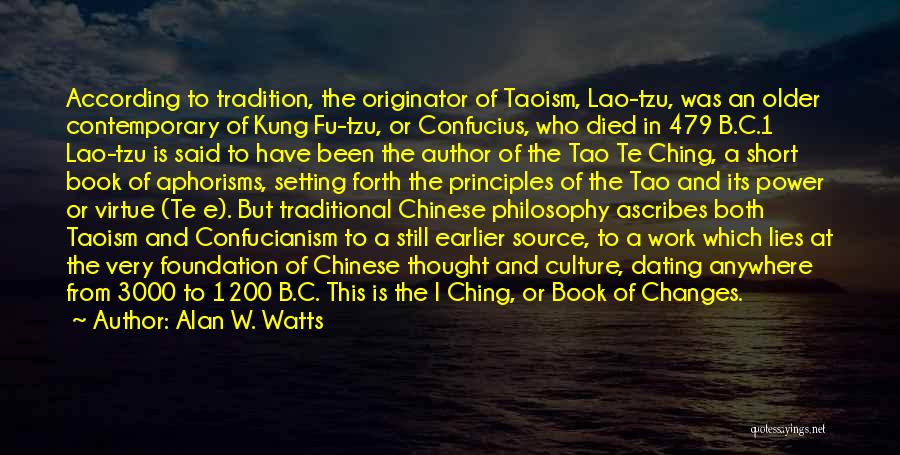
According to tradition, the originator of Taoism, Lao-tzu, was an older contemporary of Kung Fu-tzu, or Confucius, who died in 479 B.C.1 Lao-tzu is said to have been the author of the Tao Te Ching, a short book of aphorisms, setting forth the principles of the Tao and its power or virtue (Te e). But traditional Chinese philosophy ascribes both Taoism and Confucianism to a still earlier source, to a work which lies at the very foundation of Chinese thought and culture, dating anywhere from 3000 to 1200 B.C. This is the I Ching, or Book of Changes. — Alan W. Watts
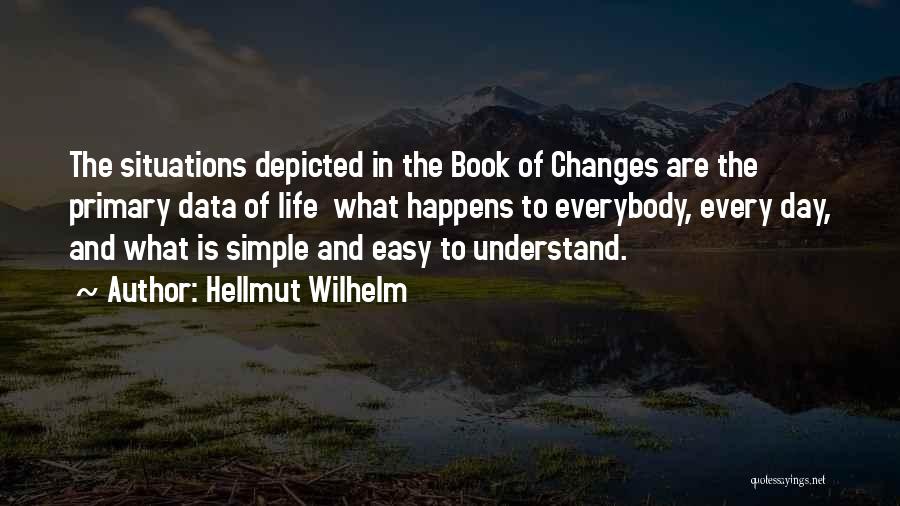
The situations depicted in the Book of Changes are the primary data of life
what happens to everybody, every day, and what is simple and easy to understand. — Hellmut Wilhelm
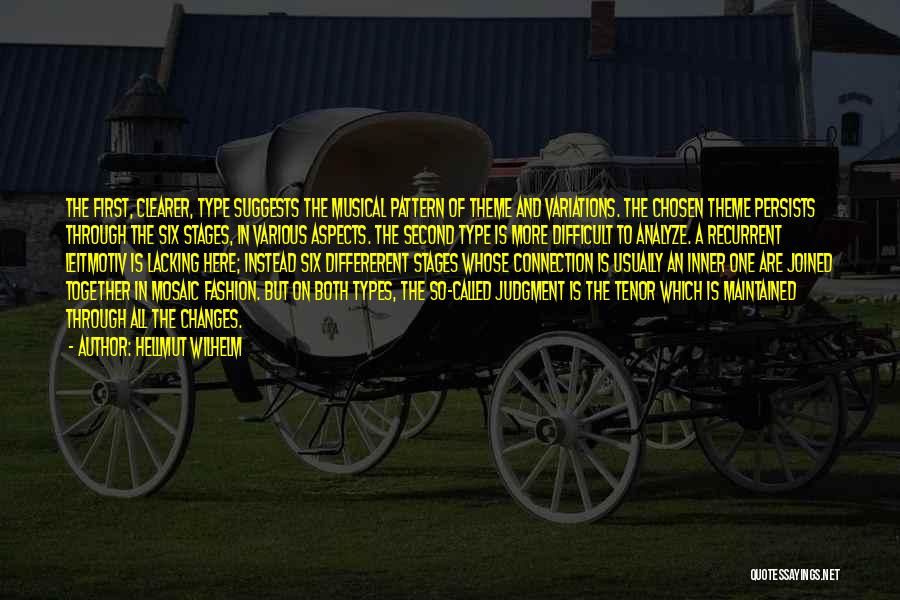
The first, clearer, type suggests the musical pattern of theme and variations. The chosen theme persists through the six stages, in various aspects. The second type is more difficult to analyze. A recurrent leitmotiv is lacking here; instead six differerent stages whose connection is usually an inner one are joined together in mosaic fashion. But on both types, the so-called judgment is the tenor which is maintained through all the changes. — Hellmut Wilhelm
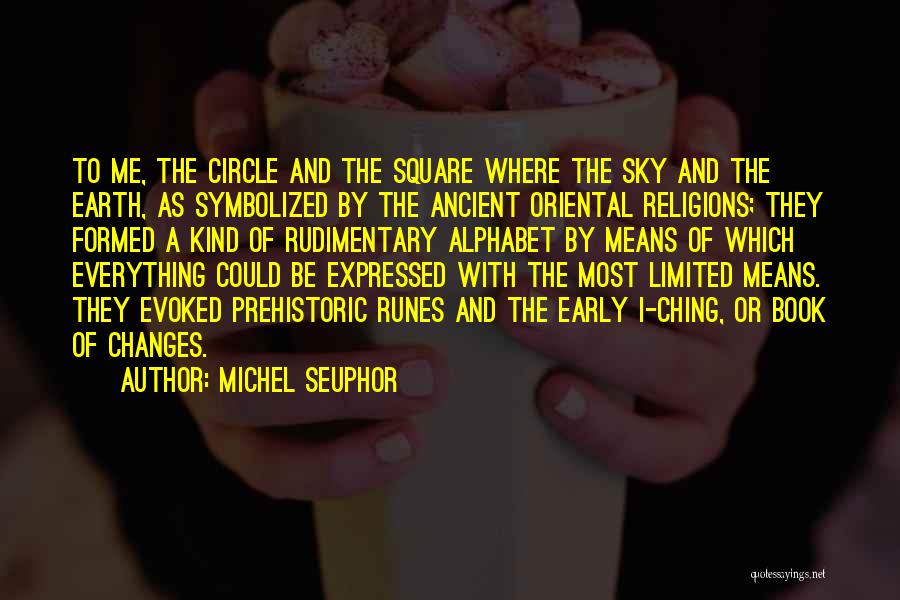
To me, the circle and the square where the sky and the earth, as symbolized by the ancient Oriental religions; they formed a kind of rudimentary alphabet by means of which everything could be expressed with the most limited means. They evoked prehistoric runes and the early I-Ching, or Book of Changes. — Michel Seuphor
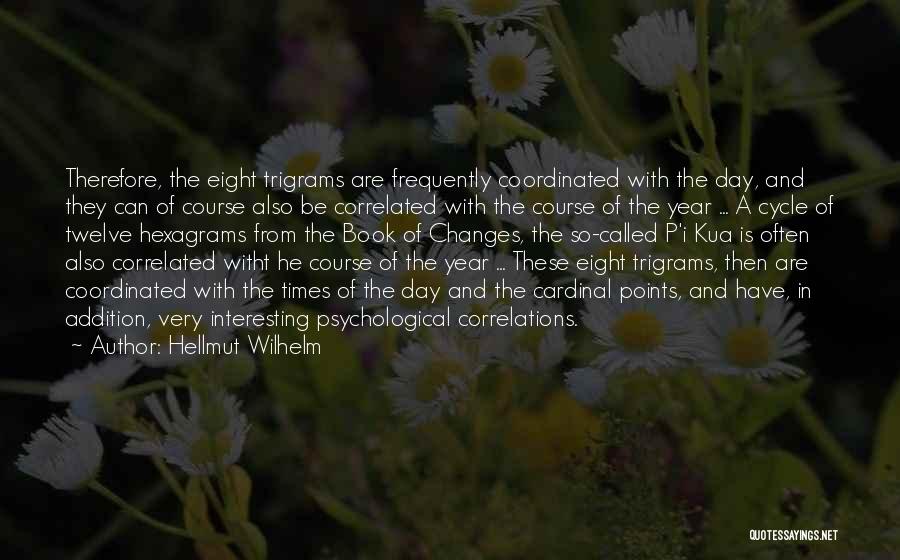
Therefore, the eight trigrams are frequently coordinated with the day, and they can of course also be correlated with the course of the year ... A cycle of twelve hexagrams from the Book of Changes, the so-called P'i Kua is often also correlated witht he course of the year ... These eight trigrams, then are coordinated with the times of the day and the cardinal points, and have, in addition, very interesting psychological correlations. — Hellmut Wilhelm





